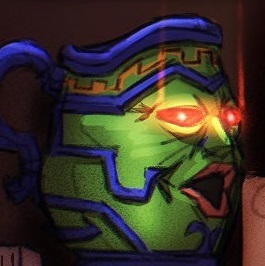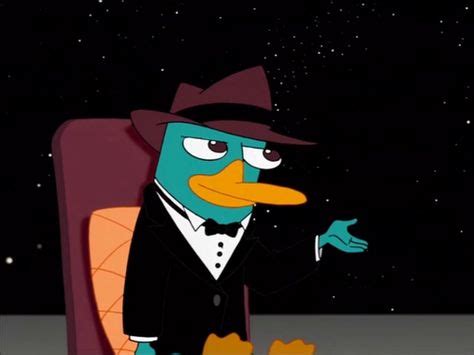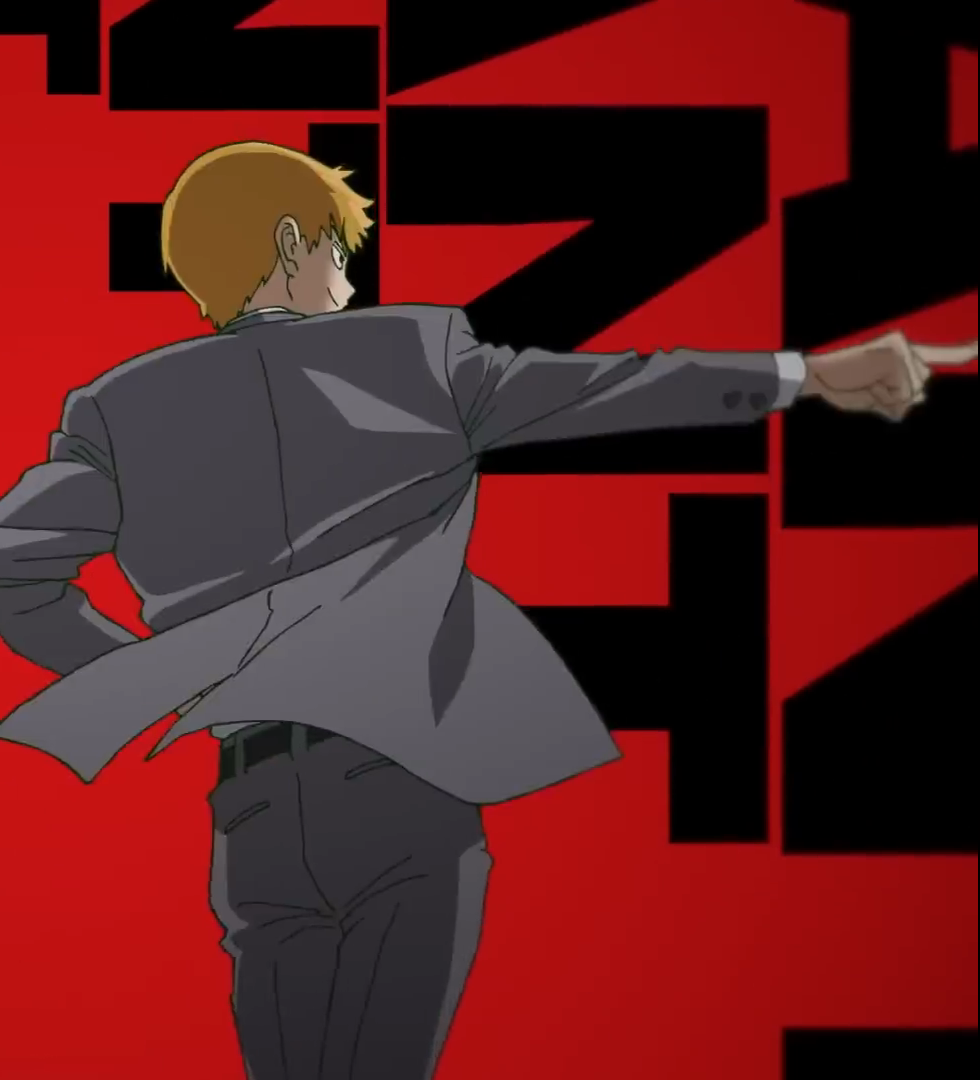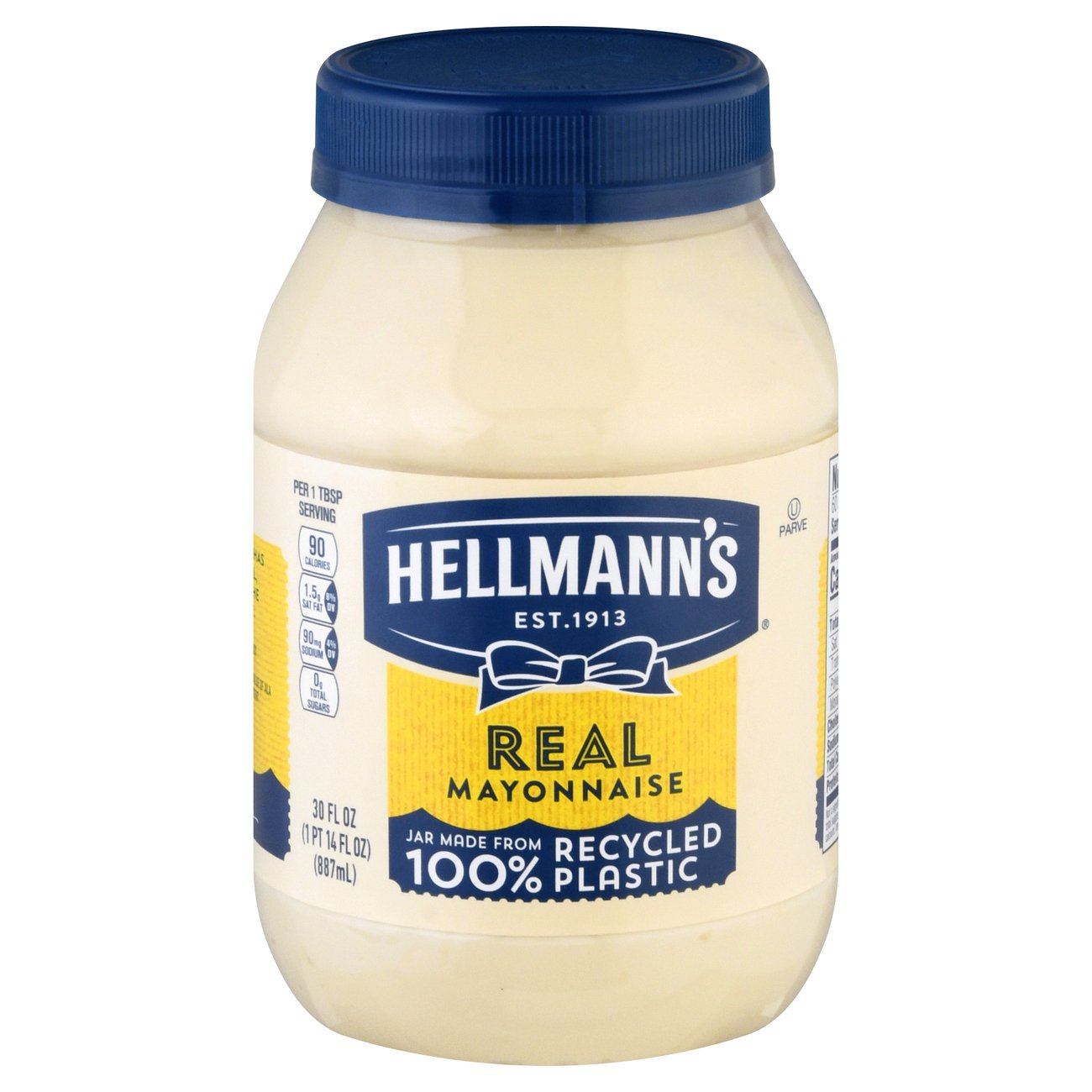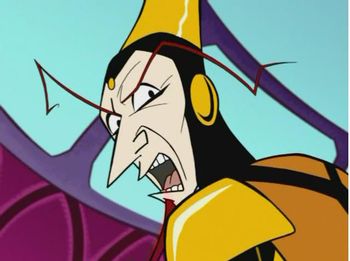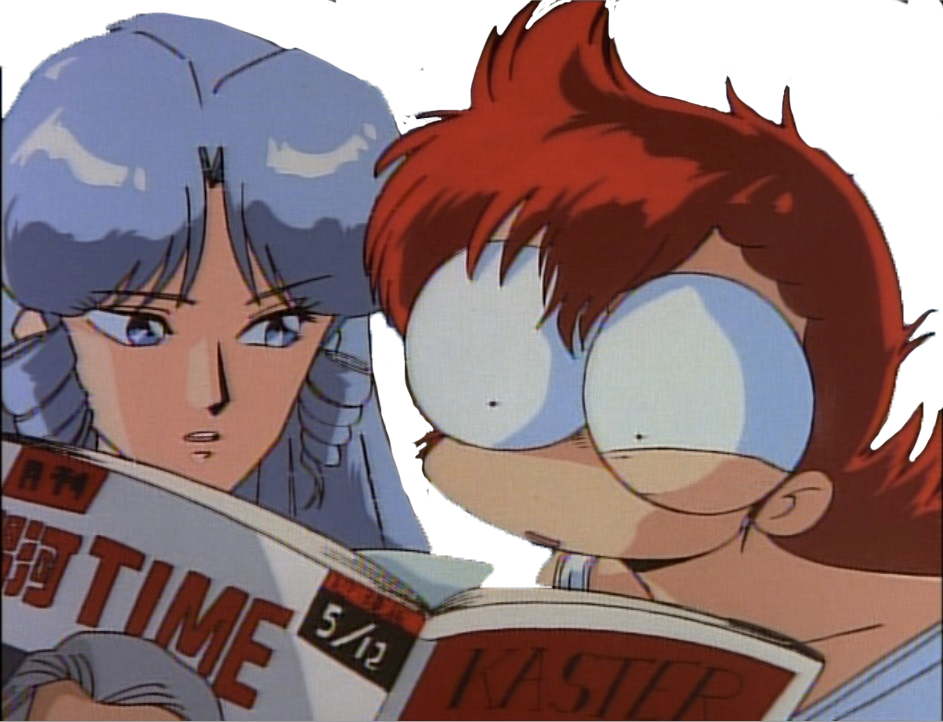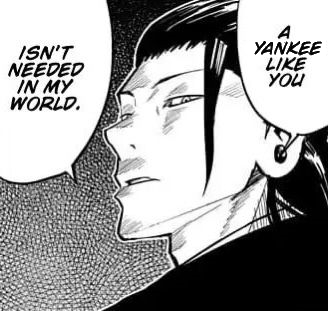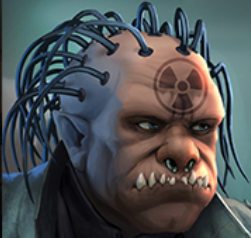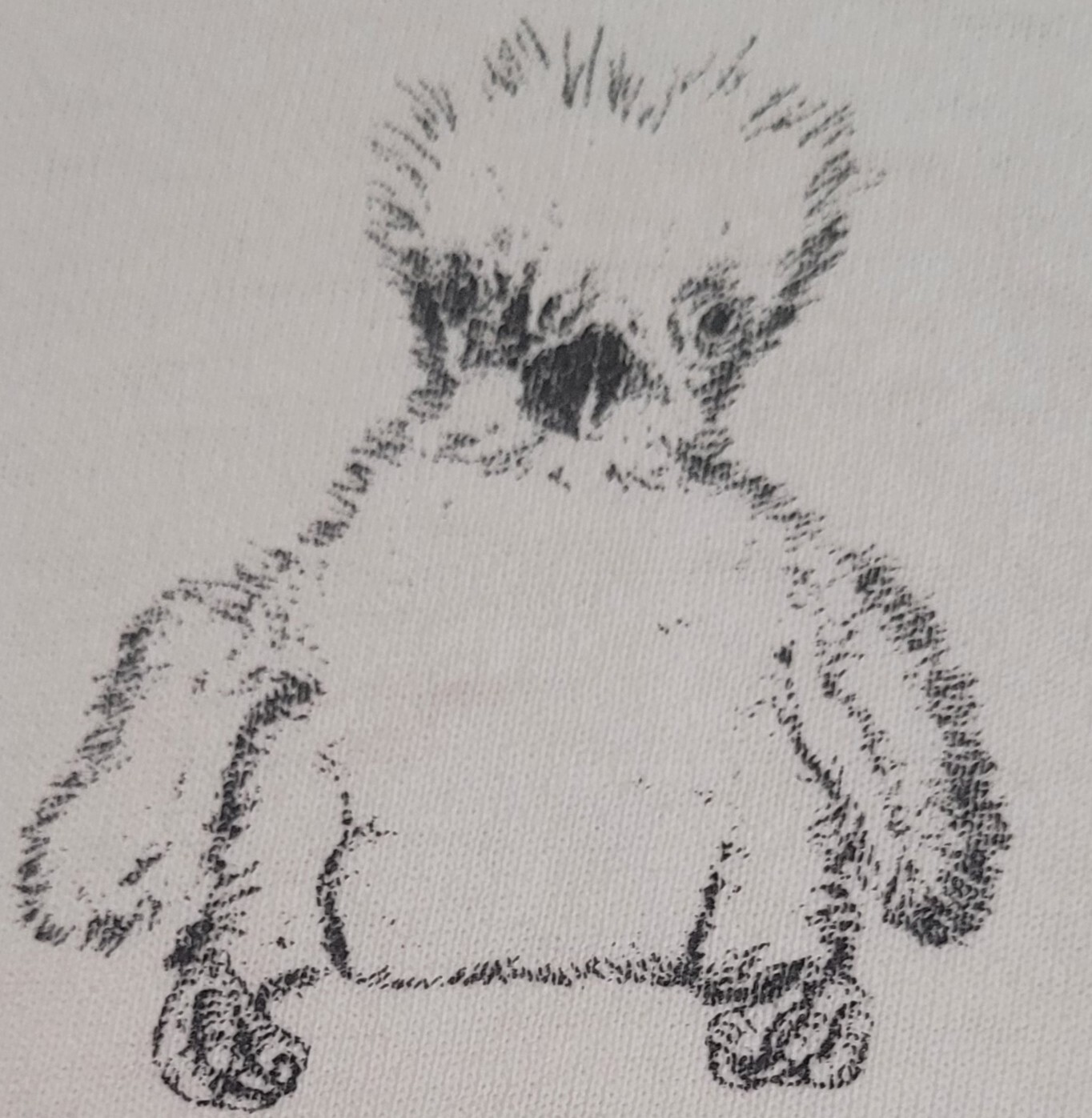CW: chapter 2 contains a detailed description of child abuse by a parent
Hello comrades, it’s time for our second discussion thread for The Will to Change, covering Chapters 2 (Understanding Patriarchy) and 3 (Being a Boy). Thanks to everyone who participated last week, I’m looking forward to hearing everyone’s thoughts again. And if you’re just joining the book club this week, welcome!
In Ch.2 hooks defines patriarchy, how it is enforced by parental figures and society at large, and the struggle of antipatriarchal parents to raise children outside of these rigid norms when the border culture is so immersed in them. Ch.3 delves deeper into the effects of patriarchy on young boys and girls and the systemic apparatuses that reinforce gender norms.
If you haven’t read the book yet but would like to, its available free on the Internet Archive in text form, as well as an audiobook on Youtube with content warnings at the start of each chapter, courtesy of the Anarchist Audio Library, and as an audiobook on our very own TankieTube! (note: the YT version is missing the Preface but the Tankietube version has it)
As always let me know if you’d like to be added to the ping list!
Our next discussion will be on Chapters 4 (Stopping Male Violence) and 5 (Male Sexual Being), beginning on 12/11.
 ITS DISCUSSION TIME Y’ALL
ITS DISCUSSION TIME Y’ALL 
@[email protected] @[email protected] @[email protected] @[email protected] @[email protected] @[email protected] @[email protected] @[email protected] @[email protected] @[email protected] @[email protected] @[email protected] @[email protected] @[email protected] @[email protected] @[email protected] @[email protected] @[email protected] @[email protected] @[email protected] @[email protected] @[email protected] @[email protected] @[email protected] @[email protected] @[email protected] @[email protected] @[email protected] @[email protected] @[email protected] @[email protected] @[email protected] @[email protected] @[email protected] @[email protected] @[email protected] @[email protected] @[email protected] @[email protected] @[email protected] @[email protected] @[email protected] @[email protected] @[email protected] @[email protected] @[email protected] @[email protected] @[email protected] @[email protected] @[email protected] @[email protected]
sorry I haven’t been active on these threads so far. my last couple weeks at work have blown up and all kinds of stuff in my life has had to take a back seat. please continue pinging me as I plan to contribute in the future once I’ve caught up
Could you add me to the ping list, please?
REMINDER: CHAPTERS 4 + 5 DISCUSSION IN 3 DAYS

@[email protected] @[email protected] @[email protected] @[email protected] @[email protected] @[email protected] @[email protected] @[email protected] @[email protected] @[email protected] @[email protected] @[email protected] @[email protected] @[email protected] @[email protected] @[email protected] @[email protected] @[email protected] @[email protected] @[email protected] @[email protected] @[email protected] @[email protected] @[email protected] @[email protected] @[email protected] @[email protected] @[email protected] @[email protected] @[email protected] @[email protected] @[email protected] @[email protected] @[email protected] @[email protected] @[email protected] @[email protected] @[email protected] @[email protected] @[email protected] @[email protected] @[email protected] @[email protected] @[email protected] @[email protected] @[email protected] @[email protected] @[email protected] @[email protected] @[email protected] @[email protected] @[email protected] @[email protected]
I don’t really have any cool insight about what hooks says, this is just a big paragraph about the book’s effect on me.
spoiler
I am just kinda surprised how much patriarchial manhood has seeped into my brain despite being a trans guy I suppose. I didn’t think trans men are automatically free from toxic masculinity but I didn’t expect my pre-realisation life to be a period for learning it. I thought things like suppressed rage, fear of emotions and constant attempts to justify myself as a guy were specific to me as a person due to some mental problem. This book made me rethink what I was taught about being a man and how I encountered gender throughout life.
It also got me to be more honest towards my friends about emotions and that’s been a positive change.
Chapter 3 gives me a lot dread when thinking about raising my own children. There is this meme that “kids ask the darnedest things” that is supposed to come off as endearing, cute, silly. In my experience, these questions are jolting. They will ask these “why” questions that reveal that they’ve noticed there is something wrong with the way things are, and if you’re lucky you’ve noticed it too and thought about it already and have a good answer. That answer will be somewhere between an easy lie that’s available and you can gaslight them with a fake answer, or that hundreds of years of oppression and shitty propaganda have spawned this garbage tradition/norm/activity you’re observing. You can probably get away with participating in it too if you meet all the criteria, but if you don’t people might notice and single you out. I am being a little dramatic but not really?
I don’t have a great idea on how to navigate those examples brought up like the boy wanting to wear nail polish or going by Ruby. I want to be the kind of parent that is supportive of whatever decisions my kids make especially if they’re right, but I’m terrified that they’ll be rejected by their peers as they get older. The male loneliness was very relatable to me and not something I want my kids to have to experience. It feels like there is no way to escape patriarchal thinking, best case you can cross some lines but go too far outside the constraints and you’ll be rejected by all your peers who are glued to whatever the youtube algo fed them.
I want to be the kind of parent that is supportive of whatever decisions my kids make especially if they’re right, but I’m terrified that they’ll be rejected by their peers as they get older. The male loneliness was very relatable to me and not something I want my kids to have to experience. It feels like there is no way to escape patriarchal thinking, best case you can cross some lines but go too far outside the constraints and you’ll be rejected by all your peers who are glued to whatever the youtube algo fed them.
This is a question I struggle with also. I ultimately came to the conclusion that even if he gets hurt by his peers, I don’t want to police my son’s gender before the world has a chance to. However I live in a very diverse, liberal area, so there’s at least some degree of tolerance and acceptance of difference. If I thought he might get hate crimed for wearing pink shoes I might come to different conclusions
deleted by creator
They will ask these “why” questions that reveal that they’ve noticed there is something wrong with the way things are, and if you’re lucky you’ve noticed it too and thought about it already and have a good answer
Children have the lowest rank on the patriarchy hierarchy since they can see through how fake everything in our culture is. We forget as we get older that everything about our culture and we do is voluntarily and made up by people. They are learning these rules so can see when they don’t make sense or are hypocritical. That is why they make up uncomfortable. This leads to people lying to their children or just dismissing their concerns with “because I said so” or “you will understand when you are older”.
“you will understand when you are older”
Growing up, I thought it was wrong to spank kids and I said as much. This was my parents’ response. Well, I’m in my 30s now, and I think it’s incredibly fucked up that spanking kids is normal and accepted.
The lowest people in the hierarchy are children.
I try to restrict my bad answers to “I need to think about that one a little” because I genuinely do need to think about them more. Another thing kids are great at that isn’t mentioned as much is they will very readily make shit up to explain things. They give me all kinds of reasons for why something happens and those are just the ones they verbalize. For every question they ask there are countless hidden assumptions and contradictions cooking in their heads. Some of them surely get weeded out as they age and learn but all the voluntary things we don’t talk about are just baked in to them passively.
For every question they ask there are countless hidden assumptions and contradictions cooking in their heads. Some of them surely get weeded out as they age and learn but all the voluntary things we don’t talk about are just baked in to them passively.
This make sense because there is a lot in our world that is strange if you think about it. Everything from the sun rising everyday, motorized vehicles zipping around, using paper in exchange for things and every cultural rule. It makes sense that children have questions and some are based on magical thinking. Since so much is magical thinking.
Also “I need to think about that one a little” and “I don’t know” are great answers for children. It shows that you don’t have know everything as an adult
I really appreciate hooks’ discussion of how religion rigidly enforces gender roles, specifically Christian churches in the west. I was deeply involved in an evangelical church as a teenager and oh my god the number of times I heard “men are the head of the family, god wants you women to submit to your husbands” told to a bunch of teenagers (and adults!) still creeps me the fuck out to this day. There’s a lot of discussion in leftist spaces about if and how the existing structures of churches and religious organizations can be used to further our cause but hooks explains the reality well: religious institutions are inherently conservative and have a long history of collaborating with the ruling class.
The next section on the direct impact of this patriarchal thinking on her home life was horrifying to read
CW: child abuse
Her father beating up his little girl with a plank of wood because she liked playing with marbles and was better at the game than his young boy while the rest of her family just watched in horror is so heartbreaking. I had to put the book down for a little bit after reading that. THIS is the retvrn to trvdition that chuds want. This is what violent enforcement of patriarchy means.
I read these two chapters with the recent discussions about Hexbear’s misogyny and general bigotry problems in the back of my mind, particularly the incel apologia that rears its head here whenever that subject gets brought up. hooks dismantles these mindsets very effectively in chapter 2. While she is extensively criticizing feminist “separatist” ideology, she also makes it clear where the lines are drawn (emphasis mine):
Separatist ideology encourages women to ignore the negative impact of sexism on male personhood. It stresses polarization between the sexes. According to Joy Justice, separatists believe that there are “two basic perspectives” on the issue of naming the victims of sexism: “There is the perspective that men oppress women. And there is the perspective that people are people, and we are all hurt by rigid sex roles.”…Both perspectives accurately describe our predicament. Men do oppress women. People are hurt by rigid sexist role patterns. These two realities coexist. Male oppression of women cannot be excused by the recognition that there are ways men are hurt by rigid sexist roles. Feminist activists should acknowledge that hurt, and work to change it—it exists. It does not erase or lessen male responsibility for supporting and perpetuating their power under patriarchy to exploit and oppress women in a manner far more grievous than the serious psychological stress and emotional pain caused by male conformity to rigid sexist role patterns.
The incel epidemic spurred on by alienation and rigid societal enforcement of patriarchal gender roles is a serious problem that we should want to do something about. The answer is NOT to carve out space for these violent misogynists in otherwise safe spaces for femmes and minority groups hurt by capitalist patriarchy. Patriarchal men beat their little girls with boards for being better at a marbles game than their little boys. hooks points out that yes, her story is from the 50s, and the general tide is shifting in that regard, but patriarchy is enforced by violence. Why the fuck would you give these violent men the space and opportunity to continue inflicting that on women? Men have to be willing to do the work themselves before we get anywhere near what incel apologists on this very site are advocating for.
If there’s one single section of this book I want every masc user on this site to read, it’s this one (emphasis mine):
Indeed, radical feminist critique of patriarchy has practically been silenced in our culture. It has become a subcultural discourse available only to well educated elites. Even in those circles, using the word “patriarchy” is regarded as passé. Often in my lectures when I use the phrase “imperialist white-supremacist capitalist patriarchy” to describe our nation’s political system, audiences laugh. No one has ever explained why accurately naming this system is funny. The laughter is itself a weapon of patriarchal terrorism. It functions as a disclaimer, discounting the significance of what is being named. It suggests that the words themselves are problematic and not the system they describe. I interpret this laughter as the audience’s way of showing discomfort with being asked to ally themselves with an antipatriarchal disobedient critique. This laughter reminds me that if I dare to challenge patriarchy openly, I risk not being taken seriously.
Citizens in this nation fear challenging patriarchy even as they lack overt awareness that they are fearful, so deeply embedded in our collective unconscious are the rules of patriarchy. I often tell audiences that if we were to go door-to-door asking if we should end male violence against women, most people would give their unequivocal support. Then if you told them we can only stop male violence against women by ending male domination, by eradicating patriarchy, they would begin to hesitate, to change their position. Despite the many gains of the contemporary feminist movement—greater equality for women in the workforce, more tolerance for the relinquishing of rigid gender roles—patriarchy as a system remains intact, and many people continue to believe that it is needed if humans are to survive as a species.
…To end patriarchy we must challenge both its psychological and its concrete manifestations in daily life. There are folks who are able to critique patriarchy but unable to act in an antipatriarchal manner.
When users on this site (specifically, cishet white masc users) talk over or flat out ignore what minority users are telling them about the bigotry problem on HB, they are the same people who laughed at bell hooks when she dared to name the problem of patriarchy to an audience. They are the same people who agree that male violence against women needs to end, but if that means they lose some benefits of patriarchy, suddenly they’re not on board, and the people criticizing their shitty behavior are having “outbursts”, said in the most condescending tone imaginable. You can claim to be a leftist, you can claim to be a socialist or an anarchist or a communist, but personally identifying with leftism, by itself, is not anywhere near enough. Your “””right””” to make silly little “ironic” misogyny/racism/chauvinism posts on an internet forum is not more important than the safety and liberation of the people you call your comrades. And particularly, if you try to use the above sections from hooks or any other part of her work as a cudgel to make femmes be kind and welcoming to men who want to hurt them, you are a reactionary and you can fuck all the way off out of this space until you start giving a shit about excising your brainworms.
I’m deeply depressed by the fact that the people who need to read this book the most, won’t. I appreciate every one of my Hexbear comrades, and those from the wider fediverse (hi yall!), who are taking the time to engage with this material and educate themselves. This is my first time reading this book as well so we’re all on a learning journey together. From the bottom of my hear, thank you all for your insights and discussions you’re bringing to the table. This is how we learn and grow.
One last piece I wanna highlight from chapter 3:
Every day across this country boys consume mass media images that send them one message about how to deal with emotions, and that message is “Act out.” Usually acting out means aggression directed outward. Kicking, screaming, and hitting get attention. Since patriarchal parenting does not teach boys to express their feelings in words, either boys act out or they implode. Very few boys are taught to express with words what they feel, when they feel it. And even when boys are able to express feelings in early childhood, they learn as they grow up that they are not supposed to feel and they shut down.
…Time and time again we hear on our national news about the seemingly kind, quiet young male whose violent underpinnings are suddenly revealed. Boys are encouraged by patriarchal thinking to claim rage as the easiest path to manliness. It should come as no surprise, then, that beneath the surface there is a seething anger in boys, a rage waiting for the moment to be heard.
I feel like I’m in a weird position because I totally relate to this, being seen by others irl as a mild-mannered, “nice” guy while holding a deep sadness and often anger inside, but I’m also too anxious and too hyperaware of other peoples’ perceptions of me to really “act out” in the way she describes here, which is good, thank fuck I’m not inclined to violence and rageful outbursts and never have been. But all these feelings and insecurities I hold don’t really have an outlet at the moment, they just fester. I can identify this rage within myself and the way it presents through self-medication, distracting myself with media, and keeping my true feelings largely contained to when I’m alone and therefore feel free to express them to just myself. If push came to shove I would “implode” as she describes long before I turned that anger and despair on another person. I’ve been considering going back to therapy and this is really helping push me in that direction, I want to be emotionally well not just for myself but for my loved ones, my neighbors, my comrades.
We’re still early in the book but I’m really eager to see hooks provide an alternate path to healthy masculinity, which I assume will come later. Also, how do you reach people who have little conception of patriarchy or feminism and convince them that yes actually it’s good for everyone when you educate yourself and desire to change for the better? Very interested to hear everyone’s thoughts this week!
deleted by creator
That’s awful, I’m sorry.
I’m sure it feels worse when they know it’s wrong.
I totally agree with the highlighting of important parts. Maybe looking inwards and asking how we have first learned patriarchy as children can help to unlearn it. Also, in my experience, talking about my feelings with male socialized people encourages them to open up about theirs as well
About "imperialist white-supremacist capitalist patriarchy: maybe understanding it better might help. In her book “Caliban and the Witch”, Silvia Federici explains the origins of patriarchy as a form of primitive accumulation, that helped kick-starting capitalism. I only read one chapter in the middle though, it’s still on my list.
Also, how do you reach people who have little conception of patriarchy or feminism and convince them that yes actually it’s good for everyone when you educate yourself and desire to change for the better? Very interested to hear everyone’s thoughts this week!
I think people do not engage with these things(feminism, philosophy, history etc.) because they think it’s building castles in the sky. Direct usage of what you learn around them can warm people up to checking this “theory” stuff.
It’s very moving to have a moment where you read a seemingly heavy academic book and they just hit the nail on the head about what you’re experiencing, then go on to explain why.
while the rest of her family just watched in horror
Actually her implication is more disturbing.
His rage, his violence captured everyone’s attention. Our family sat spellbound, rapt before the pornography of patriarchal violence.
She implies that what they felt was something more like awe, rather than horror
Also, how do you reach people who have little conception of patriarchy or feminism and convince them that yes actually it’s good for everyone when you educate yourself and desire to change for the better?
i used to know someone who fell deep into peterson who admitted that the self help advice was worthless but then proceeded to stick with it instead of looking at any alternative, so i dont know.
I am glad you brought the "imperialist white-supremacist capitalist patriarchy” definition since this is the crux of what I think bell hooks does so well. By giving patriarchy its full name its pervasive nature is really shown. It also shows about how intersectionality is important and how someone can be both privileged and disadvantaged in multiple ways. I think it more clear that when talking about feminism and the patriarchy we aren’t only talking about gender but that is a big part of it
The incel epidemic spurred on by alienation and rigid societal enforcement of patriarchal gender roles is a serious problem that we should want to do something about. The answer is NOT to carve out space for these violent misogynists in otherwise safe spaces for femmes and minority groups hurt by capitalist patriarchy.
The strangest thing I see about the incel epidemic is how these people most hurt by the patriarchal gender roles are doubling down on it. These rigid roles and expectations are not working for them but they insist that these are the only rules for the game.
The strangest thing I see about the incel epidemic is how these people most hurt by the patriarchal gender roles are doubling down on it.
There’s a perverse logic to it if you’re entrenched in the mentality. Let’s just assume for the hypothetical’s sake, that you’re an incel with a ten-year pin. You were around for the heyday of Roosh V, you used to have an account on We Hunted The Mammoth or whatever that sewage trough of a forum was called, you watched MGTOW span from just some philosophy a couple jilted, cheated-on dudes coined into a full on sect of toxic masculinity.
Every day, you see men, powerful, statused-up, straining-billfolds and freshly-pressed suits men getting out of pricey cars with their trophy wives on the lockscreens of their phones-- and you know you want that; the society you live in has primed you to not only desire that with every iota of your being; but has more or less told you that if you play the game of Patriarchy correctly, you’d get it.
Then the very people that you perceive as “withholding” the privileges of “successful Patriarchal living” come by, or worse, men that you perceive as “corrupted”/“whipped”/“henpecked”/“b/ed” (all epithets I’ve had hurled in my direction for trying to tend this mentality, btw) by the people you perceive as “withholding” come by to tell you that not only is what you desire with every iota of your being wrong, but it’s actively killing you, mind, body, and soul. Telling them the score as it is terrifies them. It enrages them.
Now, just by virtue of being in this thread in general, (presumably) your feet aren’t stayed by this kind of fear-- but the average incel? The fear of change, the fear of trying to learn new rules to play by, and the fact that there isn’t really that much of a brass ring in their eyes compared to what Patriarchy would give them if they could just do it right, keeps them right where they are; unwilling to change. I’m starting to think this is something that can only reliably be tackled at the same time as capitalism is; because the more I think about it, the more it feels like a perverse risk/value assessment on their parts, and I’m not sure how you position the benefits of nonpatriarchal masculinity as worth more compared to all the tangibles that toxic patriarchy provides its adherents.
These people don’t value true friendship, internal security, or peace with one’s self and surroundings, so how do you make that ‘worth more’ in the eyes of someone who predominantly values violence, domination, and control?
Every day, you see men, powerful, statused-up, straining-billfolds and freshly-pressed suits men getting out of pricey cars with their trophy wives on the lockscreens of their phones-- and you know you want that; the society you live in has primed you to not only desire that with every iota of your being; but has more or less told you that if you play the game of Patriarchy correctly, you’d get it.
The crazy thing is that if you are a walking Red Flag like these guys the only way to get women is by playing the Patriarchy game correctly. They can’t not play that game because they would have to change and take accountability for your actions. If you are a walking Red Flag all women and most men will run away at the first sign of being asshole. Except those who are using you for something else like money or status. So for this powerful statused-up assholes the only women they see want to use them because they self-select that way. Everyone else would run away or not engage. So from their perspective they are correct but they don’t see their world isn’t the only one.
The thing about these Manosphere / success influences is they want people to play their own game by their own rules because they are already winning that game. Its like a MLM where you need people to buy in or else it all collapsed. They need people to play their success game using their rules so they can win. I have recently tried to remind myself that I am trying to play “the happy life game” not the “capitalisms successful life game”.
I didn’t finish chapter 3 but I did read chapter 2. Chapter 2 is such a good chapter. In the same way I think Marx lays it all pretty flat in the “Communist Manifesto”, I think bell hooks lays out the whole game of Patriarchy in clear and plain language. One thing I love about this book is that language both really beautiful but also just straightforward.
I also really appreciate this chapter’s view on how violence is both a systemic thing but also a group thing. I mean that I like that hooks talks about how the violence happens in the home through physical violence of course but also through socialization. It really is a form of indoctrination we all are coerced into.
“Patriarchy promotes insanity” is so fuckin’ real. Men’s mental health is abysmal and Patriarchy does nothing to actually aid us. It creates the conditions of our anguish and woe. I think the social narrative that men need to dominate women is an acid that burns through the foundations of most men’s mental health. It creates all of these weird unrealistic expectations that no one can live up to.
I also really love how bell hooks doesn’t really let anyone off the hook saying that it’s something we all play into, but she never says “women bad” or “men bad” but does rightly say “systems bad”.
I felt inspired by chapter three to think about my own childhood. I could think of many little patriarchal “lessons”. This is just a selection of tiny incidents. I left out any bullying or the soul crushing inability to talk about feelings with my parents.
- I was friends with two girls in kindergarden, but felt the expectation to only associate with boys in primary school.
- I remember in my (all gender) scout group, a group leader told me not to sit in a particular way, with my legs crossed, because that looked “gay”. When asked why she sat in the same way she explained, that as a woman, she was allowed to.
- I remember boys worrying allot about having a “men’s bicycle” instead of a “lady’s bicycle”
- I remember, how my brother and I had found a doll somewhere and that we later overheard my mother explaining to a friend, that she didn’t mind her sons playing with dolls even though they were actually for girls. It sounded like a big deal to us and the new toy was soon discarded.
I remember in my (all gender) scout group, a group leader told me not to sit in a particular way, with my legs crossed, because that looked “gay”. When asked why she sat in the same way she explained, that as a woman, she was allowed to.
I remember as a young boy before puberty hoping that I wasn’t gay based on all of the bullying about it in the 90s from my peers. It was really toxic and hope this isn’t the case anymore. I did serious damage to both the gay kids and their straight peers. Awful all around
Being that I’m a fair bit younger and from a more “liberal” background, grew up in Sweden during the 90s and 00s which is when feminism as a “thing” hit it’s apex. After that it has been steadily declining in popularity. What feminism in Sweden means is a bit difficult to explain. It is very much focused on getting women into the work force, financially and legally independent and access to childcare, reproductive rights and maternity/paternity leave. As such a lot of the messaging that men have to be the head of the family etc were a lot more subtle than the constant barrages from her own childhood.
Of course, a lot of the professions of feminism were just skin deep and the movement was already running out of steam. But the role of the man as the obvious head of the household was already well eroded. When I went to church the trendy thing for priests was to alternate between she and he for God. But one of the big issues that eventually sank the movement was the inability to move on from separatist second wave feminism, it never really dealt with the imperialist or white supremacist part nor provided a convincing answer for what a healthy masculinity was supposed to be other than slogans like “a real man cares about their child”. If you are interested in learning more about the history of political feminism in Sweden, Yvonne Hirdman wrote a book titled “What is to be done”
 (Vad bör göras? : Jämställdhet och politik under femtio år) which chronicles the history between the 60’s to the 10’s, but I don’t think it is available in English. I disagree with a lot of the conclusions but it is an interesting view if you’re interested in gender history. With all that said, lets move on from this tangent.
(Vad bör göras? : Jämställdhet och politik under femtio år) which chronicles the history between the 60’s to the 10’s, but I don’t think it is available in English. I disagree with a lot of the conclusions but it is an interesting view if you’re interested in gender history. With all that said, lets move on from this tangent.I was raised by a single mother who very much is a feminist and wanted both me and my brother to be comfortable in showing our emotions. I assume that she had a lot similar experiences to the story of Terrence Real describes. We were very much schooled into patriarchal norms by our peers. Sadly, mom didn’t really have any good answers for what we should do when the wheels of me and my older brother hit the road of society.
Moving on to chapter 3, I was very much schooled into patriarchal thinking by my peers, and also by myself. The early part of the chapter reminds me of how mum told me about how when I was a baby I was always smiling and laughing. As a young boy I was also very cheery and outgoing, if a bit strange. Once I started seeing how my brother got shunned and how sad that made mom I had it in my head that I had to be “normal” so that I wouldn’t cause a fuss. This involved, and still involves, a lot of shame and internalized anger. I had some very rudimentary feminist theory under my belt during my adolescence (separatist second wave, having had access to something like this book would likely have helped a lot), so I never blamed women or feminism for my problems to fit in, but myself for failing and other boys and men for setting the rules. I had a lot of dissonance between forcing myself to be normal and fit in with the normal boys (did sports etc) in order to seem well adjusted while secretly blaming my own maleness and others of my gender for feeling like shit and being unable to truly fit in.
Little boys are the only males in our culture who are allowed to be fully, wholly in touch with their feelings, allowed moments when they can express without shame their desire to love and be loved. If they are very, very lucky, they are able to remain connected to their inner selves or some part of their inner selves before they enter a patriarchal school system where rigid sex roles will be enforced by peers as rigorously as they are in any adult male prison. Those rare boys who happen to live in antipatriarchal homes learn early to lead a double life: at home they can feel and express and be; outside the home they must conform to the role of patriarchal boy.
I can recognize the double life, but I would also smothered my emotions at home. I would act out as the happy and always jovial son to my mother so she wouldn’t worry about me. She had enough to deal with between work/studies, money problems and my brother who was constantly depressed. Every now and then when mom would attend me during school or sports she would often get aghast at the kind of treatment I had to deal with. This was a further reason for me to hide away what was happening. The only real positive reinforcement I got for a masculine attribute was my ‘stoicism’. I had my football coaches specifically tell me that my role in the team was to be the one that the other boys got to “mess with” as I could take it. So I did take it, but I won’t go into details. Talking about it with mum as an adult she was shocked at what was actually going on and wishes that she could have done more to help. A kind of interesting tangent is that by the time I was reading Harry Potter, which was when I was 8, I never once identified with Harry Potter. The one I identified with was Ron Weasley, which probably says a whole lot about my self esteem. That is a constant in when I’ve read/seen a lot of fiction, I don’t identify as the main character but instead as the lesser, the sidekick.
The thing I really don’t recognize myself in is the urge to connect to your father. Maybe it is because I didn’t see him much and he was always emotionally abscent, but it felt like somewhere I had to be out of duty more than out of care. The hope of fatherly love was never truly on the table in my experience, we would get abandoned from our loving home to go off and spend a weekend with someone that didn’t really care about us. If it wasn’t for my younger half brother I would probably have insisted to stop going there around age 10-11, but I kept going to see him.
The only real positive reinforcement I got for a masculine attribute was my ‘stoicism’. I had my football coaches specifically tell me that my role in the team was to be the one that the other boys got to “mess with” as I could take it.
This is both sad and completely predictable. Those who can’t do the violence expected from them can be stoic and take the violence from others without acting out, especially in sport. I remember having an opponent spit in my face while walking past enough other during half time during a soccer game since I was guarding him. He remember thinking I had to just take it since there was nothing I could do and retaliating would just get me in trouble. Just hold it in and use it when appropriate during the game
Throughout my adult mental health journey i have always struggled with that first session - when they ask about your childhood. Mine was good, great! Both parents and my grandma who lived with us gave me physical affection, encouraged me. I had a pretty good church community, I got to have piano lessons, and my parents were quite involved in my education.
Of course, i was spanked especially as a young child, also by both parents. Generally at the behest of my father, but with the wooden spoon being wielded by both parents at different times. Still, this is really mild especially compared to the abuse they both received as children, so i always felt like i had it good, i felt (and i am) privileged, and didnt understand why i was never emotionally satisfied.
My current therapist as well as getting an ADHD diagnosis has been the best at actually getting through to those childhood feelings. I vividly remember the terror of spankings (in the visual memory, my mom is the one holding the wooden spoon). I somehow learned to cry alone in my room. When i did cry in front of my family, it wasnt taken seriously (i was the youngest, weakest, wimpiest, and just wanted to throw tantrums). As i got older i have so many memories of crying while i was doing chores that i could never get quite right (ADHD and a huge yard meant i always missed some spots when mowing).
When my parents adopted my younger brother, i witnessed it firsthand as an adult - my father struggling for control over him, and my mom capitulating to my dad’s desire to exercise control over him at any cost.
I dont know where to go from here. I am inspired to continue breaking down my emotional walls and be a supportive and supported husband. As we are planning to have kid(s) of our own in the near future, it feels more important than ever. I just want to make sure i am not simply a lesser version of my father. He was “better” than his dad by miles, but the pain of the entrenched patriarchal values that i cant live up to still haunt me, ive never felt entirely open with them, hell i still feel the sting of failure to this day about a lot of things. I dont want to be the same as my father but without spanking and with a bit more “gentle parenting” aesthsetics. I want to raise children that are emotionally healthy, whole, and have the values of helping their community and looking out for others rather than looking to dominate.
Great read as always and i look forward to next week
He was “better” than his dad by miles, but the pain of the entrenched patriarchal values that i cant live up to still haunt me, ive never felt entirely open with them, hell i still feel the sting of failure to this day about a lot of things.
This exactly how I feel about my dad. My parents never hit me and would never entertain the thought but they were both “old-fashioned” as people say. Dad was the man of the house and you did whatever he said and even in my 30s I still feel an almost unnatural subservience to him.
Im the same and my brother is the same. My “failures” are often things my dad would disapprove from, his disapproval lives in my head rent free.
Although him and my mom have had a ton of family therapy over the past two years with my little brother, so maybe there is room for healing of relationships in the future
He was “better” than his dad by miles, but the pain of the entrenched patriarchal values that i cant live up to still haunt me, ive never felt entirely open with them, hell i still feel the sting of failure to this day about a lot of things
All we can do is be better than those before and try to be mindful of your own biases. We can’t be perfect and should just try out best. If you don’t feel that fear you are doing something wrong.
Great chapters! Again, I really am enjoying the audiobook, the reader’s voice is powerful yet kind, in a way that really drives home what I believe is Hooks’ intended tone.
Some thoughts:
I really loved the explanation of how patriarchy is reinforced through social pressures and tools like laughter, rather than reason. Shame is the tool of the oppressive system. I also felt that the sections on male rage as an outlet for patriarchy’s pressures on men strikes incredibly true and straight at the reality of the violence on women and other men alike.
The anecdote about marbles was heartbreaking as well, but very powerful in illustrating how even though women are the primary target of patriarchy, even men who are forced to adopt a privledged role are psychologically damaged and hurt by it as well, fueling an endless cycle of systemic violence that circles back into bottled up emotions and pent up rage.
Excited to read what others have to say! I’m not too good at giving my thoughts, this is my first time participating in reading threads, but I promise I’ll get better!
Like a lot of folk in here, chapters 2 and 3 sent me on a deeply unenjoyable walk through my own childhood as if taking inventory of my experience as compared to what hooks speaks of; and I feel like her analysis that ‘the most present enforcers of fledgling patriarchal thought in a young boy is his peer-group’ links hand in hand with a lot of why I’m not willing to father children; the exact same root that my ‘by the time your seed is 5, your seed may as well no longer be yours with how much time your seed’s school wants to keep them there’ take springs from.
Your kid spends more time around peers and teachers than they do you by the time they’re seven or eight; which leads to the exact kind of anecdotes as the family that TRIED raising their youth to be anti-patriarchal only to find that their son was still being bombarded with messages-- with shame– from within the school to a point that it undermined and jeopardized the lessons the parents were trying to teach.
I think what sticks in my craw about it the most is seeing my own upbringing in that. Mine wasn’t a household where I could even think of becoming anything other than the demanding, every-flavor-but-sexually abusive patriarch my fill-in was. Even before it was my peers labeling me the ‘sissy’ or f/, it was him; any time I showed weakness, any time I let a tear escape, any time he could hear me reacting to the ways he’d hit me, or mentally cut me down. And it had the intended effect. I was emotionally dead by ten, and certain that if I didn’t leave home by the time I was 14, it was either going to boil down to me or him, one of us was going to kill the other. Which just walks itself back to those that live under abusive, domineering patriarchy praying for the death of the patriarch, doesn’t it?
What scares me is that I still could; that the potential for violence even in spite of all I’ve learned and all I’ve tried to un-learn, is still there. That man hasn’t moved houses in 17 years. I could go ‘home’, stake his neighborhood out a couple weeks, kick the downstairs sliding door through-- or maybe get in through one of the un-screened windows, 'cause I know without me to handle all the menial labor, he sure didn’t do it himself-- and put him down like a dog with cancer on his ratty-assed couch these days. Any number of ways, really; he prepared me for violence, and in spite of it all, that violence hasn’t gone.
I can’t forgive him for what he shaped me into before my actual father could get to me. Not that he was any better (he wasn’t abusive to me; if anything, I was my bio father’s golden child lost and found; but he WAS more or less a hyper-misogynist who cheated hard and often enough to more or less steer my patriarchal development in the ‘heartless casanova’ direction than the ‘nearly a school shooter’ direction by action even BEFORE he started ‘teaching’ me), but at least I got a couple good years with him.
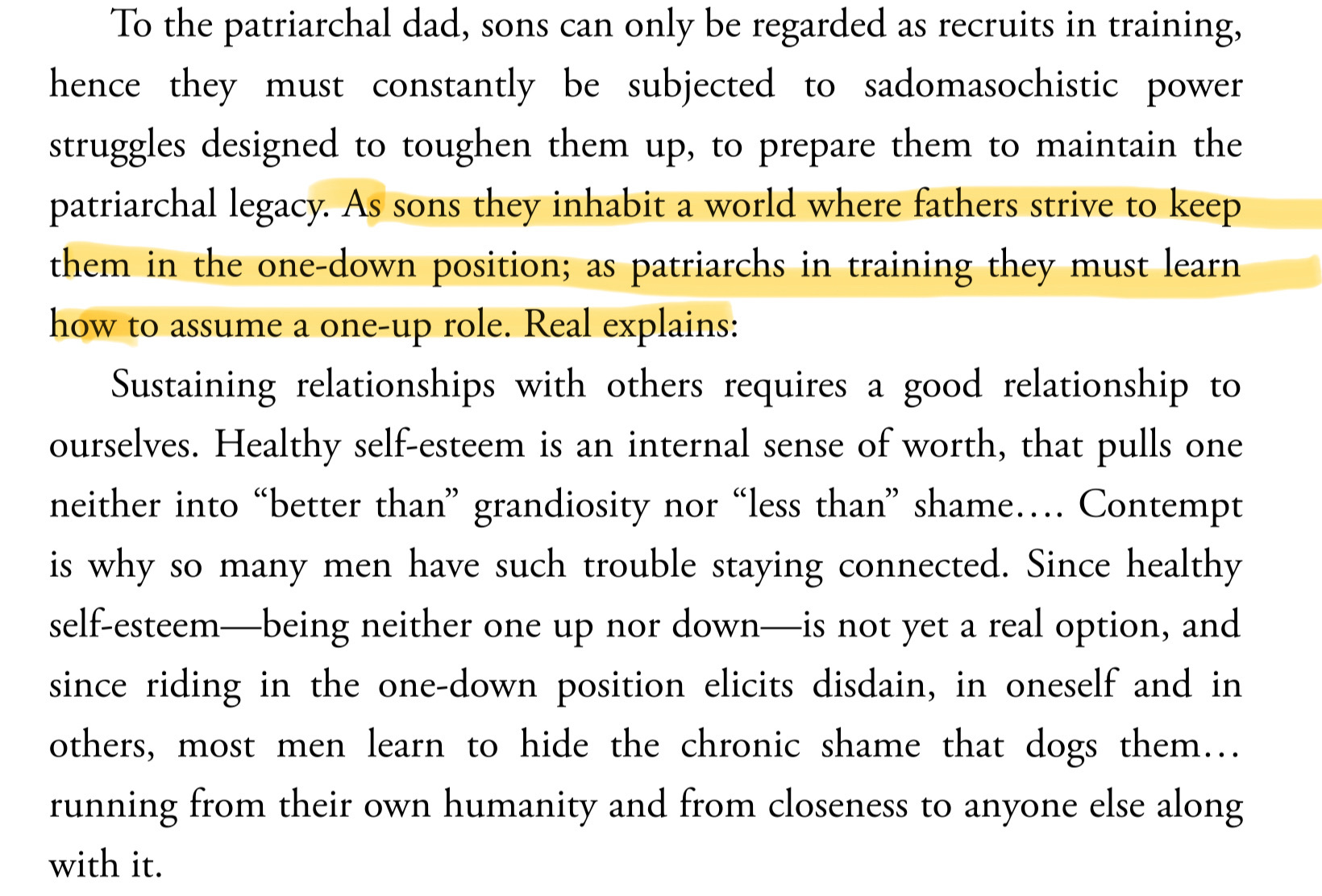
I always had an intuitive sense of this. That my dad felt entitled to unquestioning obedience, and that this was because he felt he earned it by enduring his own time living in the shadow of his patriarch and his older sisters.
Between this and other passages in chapter 2, I’m beginning to think it may be in my emotional best interest to someday forgive my father for his enforcing of patriarchy onto me… Frustrating, because I have found some liberation in internally expressing anger about my treatment and pushing back on it.
A more general response to what I’ve read so far:
I was surprised how much criticism bell hooks has for the feminist movement of the time, and how some of that criticism still applies despite all the time since then. Feminism is a lot less “man-hating” than it has been in the past. While I have no standing to criticize fem comrades victimized by men for vilifying men in general, I hope that we can keep moving towards men can being considered potential allies in the fight against patriarchy rather than an immovable stumbling block that should all fuck off and die. Destroying the patriarchy has benefits for men as well as women; we have to include that in our case for feminism because the idea that men currently have a leg up they need to relinquish is a tough pill to swallow on its own.
My experience with domestic patriarchal domination in my childhood aligns with hooks’ description. The main emotions my father displayed were a) nothing or b) a full blown meltdown in which I was accused of purposely failing at school just to make my father angry, “thwarting” him in all things, and when anybody questioned this narrative, claiming that the family was actually ganging up on him. Some of this was undiagnosed adhd, but I have no doubt that my father couldn’t find something else to scapegoat me for; he needed a receptacle for his rage in his emotionally stunted state and I was the most defenseless emotional trash bin available.
My father was constricted in his emotional range to the point that he could never express that something bothered him until he overcame that barrier and dumped all his frustration (including his workplace stress) onto me, the only person who couldn’t defend themselves. The only way for me to get him to stop was to start crying, which thankfully wasn’t punished in my house. I was never hit with the classic “I’ll give you something to cry about” move.
However, I eventually decided that the way to combat this was to cover up my emotions and not let him see me cry, and cramming my emotions down where they couldn’t be accessed led to me developing depression later on. By high school, I felt emotionally deadened almost all the time, and my dominant emotional state was rage and shame directed inwards because I had too much empathy to ever direct it outwards at another person.
So far, it feels good to feel seen by a revolutionary feminist thinker that I have never met. I am optimistic that she will have some concrete suggestions for how I can restore the parts of me that patriarchy tried to eradicate, as well as how I can possibly help the men in my life do the same.
I have felt alienated and hurt as a man in feminist spaces before. Particularly in one I used to be in on Facebook. I was harassed and pushed out after lightly pushing back on black and white rhetoric one time. I think I still have the journal entry I wrote about that somewhere.
I was surprised how much criticism bell hooks has for the feminist movement of the time, and how some of that criticism still applies despite all the time since then.
I think is part of the appeal of bell hooks is that she tells it how it is and doesn’t leave any group blameless. We (men, women, feminists, etc.) have made mistakes and we need to see them and correct from them. This is something that we as a society are terrible at and its good to see it called out. Part of this is because vested interested need to sow division and amplify those voices that help them. This includes the most Man Hating elements of feminism because its a great enemy to fight. I think often about how for reactionaries and bigot they need the enemy who are their allies in division. Their true enemy is those of us who reject their definitions of enemies and want us all to get along
I always had an intuitive sense of this. That my dad felt entitled to unquestioning obedience, and that this was because he felt he earned it by enduring his own time living in the shadow of his patriarch and his older sisters.
I do think there are a lot of people who don’t want to make things better since they had to deal with it when they were younger. So they keep the cycles since they are on the top now forgetting how it feels to be on the bottom. They need to be have us feel this pain or else they suffered for no reason. Even though that is what happened.
I fell behind a bit but all caught up now.
Most of my own experience with patriarchy was of the psychological kind. My mom made it a point to my dad that he was not to beat me as violently as was described in chapter two. Not that it freed me from the occasionally slap, but my dad early on would threaten to beat me with a belt or a chancleta (oh boy do we as latinos love joking about “la chancleta”).
I think Hooks makes a good point about how both the men and women of the family contribute to the maintenance of the patriarchy. As much as my mom loved us she would still do the “big boys don’t cry” type stuff. Even now anytime she hears about how one of my cousin’s sons has a tendency to throw sobbing fits when things don’t go his way she’ll say “he’s too old to be crying like that”.
Also religion in my mom’s side of the family is definitely used as a justification for reinforcing gender norms and male dominance. Not that long ago I had posted about a small family gathering where the man that is dating my cousin went through all of the tropes of patriarchal dominance (the man is the ruler of the house, women’s place in the family is to support her man, among queerphobic points) and all of the women present added their voices in support of what he was saying aside from my mom. My mom mostly stayed quite, but I know she really felt like the way they were talking was problematic. Its a bit at odds with her religious beliefs, but she at the very least believes in more equality in the home, even if, as I mentioned before, she reinforces some of the very ideas of patriarchy expressed here.
Going back to the point of psychological patriarchy, for most, if not all of my youth, my dad never really expressed much affection for me. that changed a bit with my brother, who he used to be more expressive with. But he still would say things that would make me, and probably my brother, about what it meant to be a man. One thing that has always stuck out to me was this story about my older half brother that he’d always tell us. It was about how one day he came home and found him and his friend practicing a dance or something along those lines. When he found him he told him that he wasn’t going to have his son influenced by him and kicked him out of the house. I honestly don’t know what exactly was the cause. Whether it was just that there may just have been that he didn’t want him to be “street/ghetto” or if it was some homophobia, but the story always stuck with me. I’ve never invited a friend over to my home and my brother has just once or twice. Add to that the general mistrust that the media creates in each other, which usually pushed my mom to emphasize that we shouldn’t just go anywhere that our friends invited us, and my possible neurodivergance, and it made for a childhood where I generally didn’t really connect with people.
There was always this conflict in my mind between being emotionally expressive and “thinking before I spoke” as one well meaning teacher once told me. I learned to keep my feelings to myself. The talk about disassociating and disconnecting in this chapter really struck a nerve with me because I had a period during high school where I completely isolated myself. My friends would often tell me to stop eating by myself during break and while I would join them for a day or two I would go back to isolating. High school was also the first time I had someone tell me I have “school shooter vibes”. And I always laugh it off, even to this day, but thinking about it hurts because I don’t really hold ill will towards my peers like that. I also have a former co-worker that I still hang out with from time to time that always complements me on my “emotional control” and I fucking hate it. He watches
 videos and other manosphere stuff and I fucking hate that he looks up to me for that reason. Truth is I’m just masking my emotions. And it eats me up inside that at my age I don’t really know how to properly express myself.
videos and other manosphere stuff and I fucking hate that he looks up to me for that reason. Truth is I’m just masking my emotions. And it eats me up inside that at my age I don’t really know how to properly express myself.Well. Not so much that as much as I always hesitate to express myself because as Hooks pointed out, I just grew up in an environment where patriarchy enforces the idea of the emotionless male. Whether it was my parents or my friends and peers, its something that is always present and always propagating itself.
Well. Not so much that as much as I always hesitate to express myself because as Hooks pointed out, I just grew up in an environment where patriarchy enforces the idea of the emotionless male. Whether it was my parents or my friends and peers, its something that is always present and always propagating itself.
I think the emotionless male has the strongest grip on most of us. I gave up the Man vs Woman roles in society decades ago while I am just on the first steps of the feeling and expressing myself. When things get difficult its hard to not revert. Especially since this is still enforce by rules of “professionalism” at the office. I think most people have been either reprimanded for being unprofessional at work for showing emotions. I get that people shouldn’t be subject to other people’s anger at work but the complaints are never when I boss does it but just went us workers do it.
with chapters like 2-5 (as soon as I got the ebook downloaded and switched to that from the audiobook I ended up reading ahead lol) this book really hits its stride for me.
I get why it’s so widely recommended now. my most salient thoughts are on the later chapters, especially the sanctioning of male violence and the substituting of lower-hierarchy males as targets of violence and sexuality, as well as pervasiveness of patriarchal behavior in gay men.
ch2 left me thinking that, at least in childhood, things have gotten somewhat better since hooks’ childhood. The shame and emotional abuse are still there, but the physical abuse is less normalized. But upon further reflection, its a much smaller effect than you might think, as a lot of that violence has just gone underground.
personal experiences, somewhat traumatic cw abuse
I’m not that old, and my liberal parents in a liberal area still hit me as a kid. Not often, and they seemed to know it was wrong but they just… still did. I’m sure they’d balk at the characterization of it as even hitting, but it was (spanking mostly). As I got older and big enough to fight back (not that i ever did) it pretty much stopped, but the rage that fueled it was still there. My dad kicked something so hard he broke his own toes because he was mad at me for being up late as a teen, like wtf is that? He expected to be obeyed, I guess, but that shit never worked, I had bigger issues than just “teehee I wanna play on the computer at 3am”, my sleep cycle and mental health were all fucked up, I was starting to think about my sexuality more seriously, and I couldn’t talk to anyone, except maybe like 2 people at school, one of whom was a girl I barely knew.
I learned at some point in, idk, elementary school not to trust my parents. They just wouldn’t get it, no matter what “it” was. Or their solution would be telling me to suck it up. My mom clearly wanted to keep providing me with some level of emotional nurturing/connection, but it wasn’t very successful, the bond and the trust was broken. I’m still not out to either of them, in large part because I’m not like this because I’m not straight, or I’m mentally ill or trans, I don’t want those things to color their opinion of me. I’m just a person who wants to be allowed to have feelings and convictions and not have to justify myself, but I still don’t trust that I would be regarded as a person first, and that they wouldn’t recast how they saw my whole life anew in the context of me coming out.
The first couple paragraphs of chapter two are amazing. See below (emphasis mine)
I often use the phrase “imperialist white-supremacist capitalist patriarchy” to describe the interlocking political systems that are the foundation of our nation’s politics. Of these systems the one that we all learn the most about growing up is the system of patriarchy, even if we never know the word, because patriarchal gender roles are assigned to us as children and we are given continual guidance about the ways we can best fulfill these roles.
Patriarchy is a political-social system that insists that males are inherently dominating, superior to everything and everyone deemed weak, especially females, and endowed with the right to dominate and rule over the weak and to maintain that dominance through various forms of psychological terrorism and violence
Calling the patriarchy by its full name really shows how systematic it is and removes some of the lowest hanging critics right away. I will need to remember this when I hear “We don’t live in a patriarchy because my boss is a woman” or “rich people regardless of gender are oppressors, so we don’t live in a patriarchy” to bring up the full name. With the full name these bad critics are really bad faith arguments.
The real key to understanding the patriarchy is the dominating over those deemed lesser on this hierarchy. Once you understand it you can see it everywhere. The insistence that someone people’s time / life / body are worth less than others, the implicit violence, and the insistence there is one way to be a “real man”. If you can get someone to read these two paragraphs only or all of chapter 2 it would be a major eye opener for some people
Calling the patriarchy by its full name really shows how systematic it is and removes some of the lowest hanging critics right away.
Absolutely, and it forces you to think about the subtler, more insidious ways it manifests in daily life. Unfortunately in my experience if someone rejects the term or concept of “patriarchy”, chances are good that they’ll also reject the qualifiers that hooks adds to her definition. You call it white-supremacist and they say “but but but affirmative action!” (and usually they’re opposed to AA because they say that the REAL racism) or, “but but we had a black president!” So the fully describing the problem kind of selects for people who genuinely who want to learn and understand the complexities of modern western society, similar to how hosting an optional book club self-selects for people interested in growing and educate themselves. It’s such a struggle to get people to understand or even try to engage with intersectionalism.
If you can get someone to read these two paragraphs only or all of chapter 2 it would be a major eye opener for some people
I’ve been considering posting excerpts of the book in other comms where relevant to expose users who aren’t in the book club to the ideas within. I know the people who really need to read this book the most are not going to and generally have no interest in learning or growing as people and that makes me so sad, but there are things I can do (and we all can do) to spread the good word around so to speak.
Unfortunately in my experience if someone rejects the term or concept of “patriarchy”, chances are good that they’ll also reject the qualifiers that hooks adds to her definition I do agree that there are some people who don’t want to be reached. They either hate new ideas or happy with being part of this system. However, I will still try to bring it up since I think people can understand intersectionalism. It also helps show you can both benefit and be hurt by a system which I think is missing in some discussions about gender roles, racism etc.
Other comms would be helpful. Especially some of the good quotes. I really enjoy [email protected] as well. Having a parallel book club or similar coordination would be helpful to spread some information. It is obviously a big ask but a short book helps.
